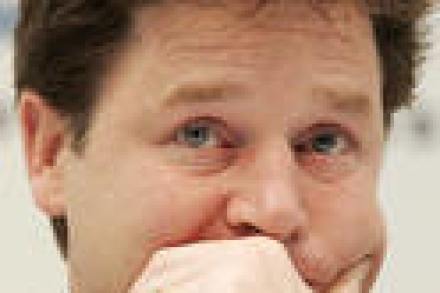Top Lib Dem donor quits party in tax row
Sam Coates breaks the news that Lord Jacobs, the Lib Dem’s biggest donor, is quitting the party. But reading about his policy dispute with the party, one wonders why he was a Lib Dem in the first place. Sam reports that: “His beef is that he wants Clegg to go further on tax, taking the lowest paid out of tax altogether but also reducing the rates for higher earners. The party is reluctant to raise employers national insurance by the required amount to pay for it, and relations have clearly broken down. Now Lord Jacobs wants to be free to hawk his tax plan around Labour and the Tories –








